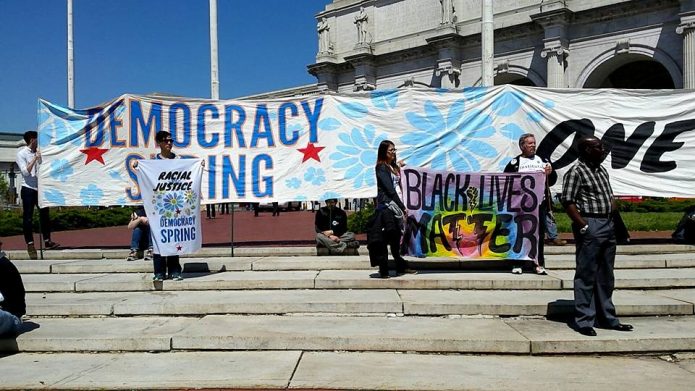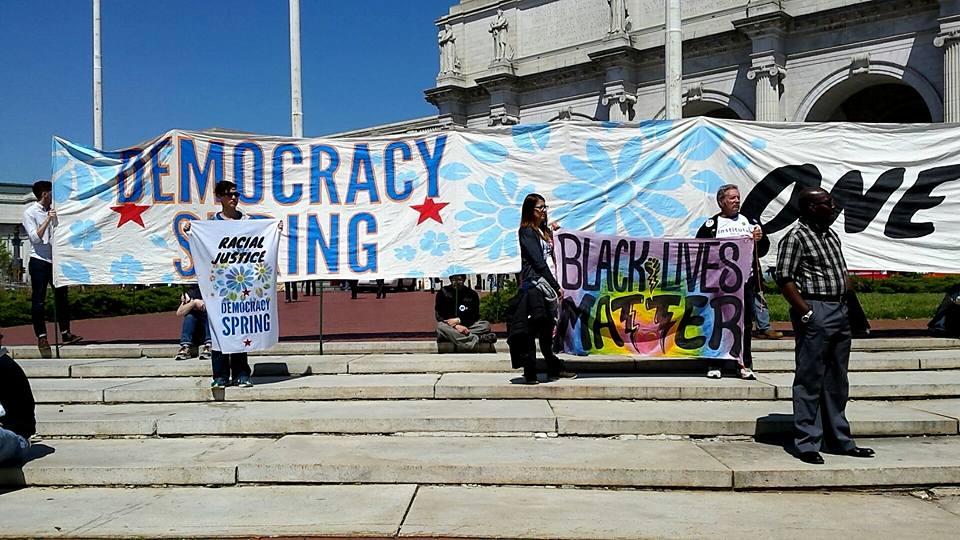
(Photo: Domenica Ghanem)
It’s an odd thing to watch your boss, fist in the air, being led away by police to be booked for “crowding, obstructing, and incommoding” as a crowd of supporters cheers him on.
The April 13 agenda for Democracy Spring was racial justice, and as I found myself surrounded by many different organizations and individuals, I started to think that this could be a defining moment for cross-issue collaboration.
The movement to combat police brutality and hold murderers accountable can ally with the movement for a living wage. The movement to battle voter suppression should support the movement to end mass incarceration. The fight of the Restaurant Opportunities Center United should include the fight of Black Lives Matter.
“The Democracy Spring demonstration recognizes a common problem amongst those working for racial justice – money in politics,” Jessica Wynter Martin of ROC told me. “The reason that we [ROC United] have to fight so fiercely for a fair wage is because of hugely funded lobbying campaigns that keep our legislators from representing the rights of restaurant workers.”
The majority of restaurant workers are people of color, and the lowest paid are women of color. Groups like the National Restaurant Association flood Congress with money every year to keep the minimum tipped wage at just $2.13 an hour.
Just as the racial justice movement has multiple layers, “Protesting at the capitol is just one step in a multi-tiered approach to fighting money in politics,” Wynter Martin said.
While dozens were arrested at the demonstration on Wednesday and hundreds more the days prior, not everyone who marched on Capitol Hill could afford to risk arrest.
Some people of color avoided as much interaction with police as possible, for the very real fear of violence, or as we’ve seen too many times, death. Some of those who stood further back were immigrants, fearing deportation even if they had the proper documentation. I kept to the side myself, a Muslim woman with my own concerns about having my name in the system.
“The important thing is that we’re burdening them just by being here. They have to hire all of these police, all of this security,” Wynter Martin said. “We’re taxing them like they’re taxing us.”
